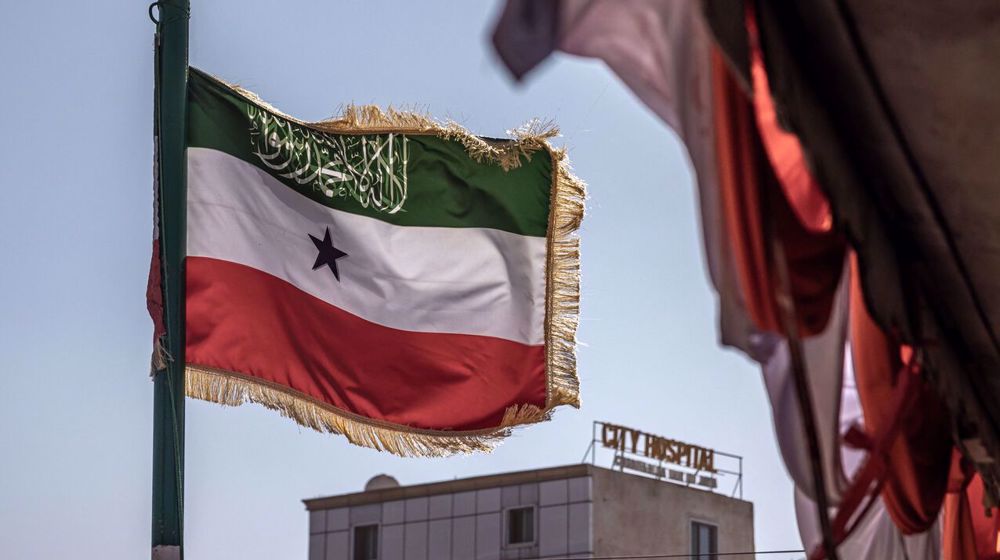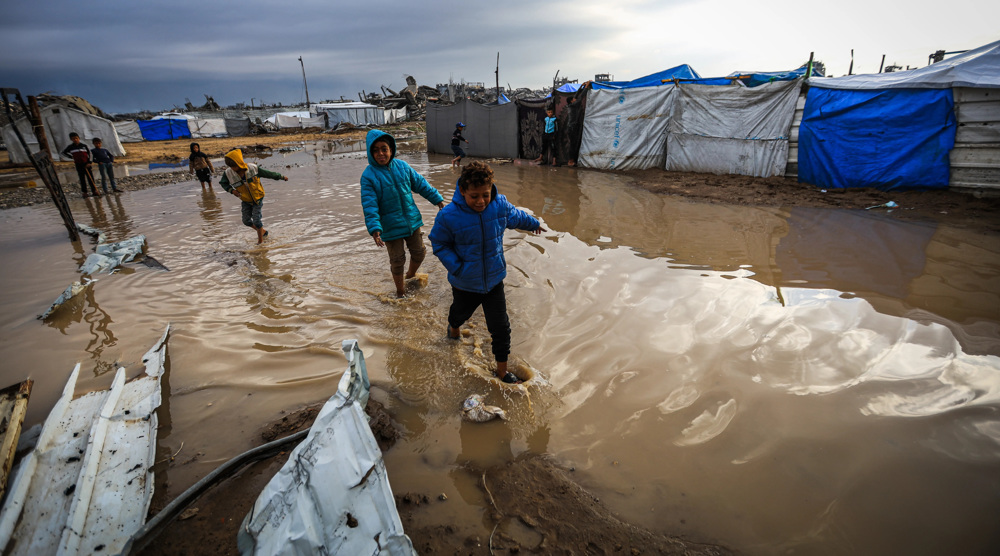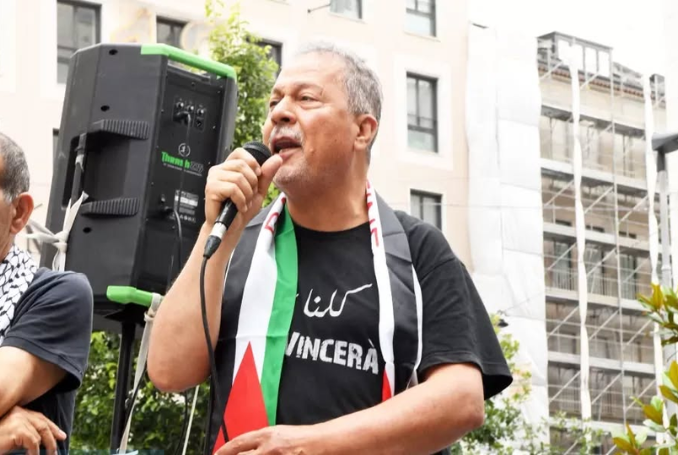Only 10% of Gazans have access to potable water: World Bank
The World Bank has expressed deep concern over the worsening clean water shortage in the Gaza Strip, stating that only 10 percent of Palestinians in the besieged coastal enclave have access to drinking water.
“So much water has been pumped out of the natural aquifer underneath Gaza since the late 1990s that seawater has seeped in, making it too salty to drink,” Adnan Ghosheh, a senior water and sanitation specialist with the international financial institution, said on Wednesday.
“There are some 150 operators who provide some kind of desalinated water that has been filtered to make it acceptable for drinking and cooking. It’s more expensive and not an improved source of water according to our definitions of water clean enough to drink.”
Ghosheh underlined that the World Bank’s priority is to secure water resources and supply, and improve wastewater management.
“We have a wastewater treatment project in North Gaza. It started as an emergency response project, but is currently working on a long-term solution, where the treated water will be used for irrigation, saving potable water for drinking and other uses,” he said.
Ghosheh also reiterated earlier United Nations warnings that the Gaza Strip could be "uninhabitable" in less than five years on current trends.
“If we start implementing the measures to secure the water supply and improve water management, the aquifer would clean and replenish itself,” he said. “But, if by the year 2020, those measures are not in place -- if the 55 cubic meters of water a year from the desalination plant are not coming to replace the water being taken out, if the waste water plants are not built -- we will basically have an irreversible process.”
The Gaza Strip has been under an Israeli siege since June 2007. The blockade has led to a dramatic decline in the standards of living as well as substantial levels of unemployment and poverty.

Director of Operations for United Nations Relief and Works Agency for Palestine Refugees in the Near East (UNRWA) in the Gaza Strip, Bo Schack, warned last month that the Israeli blockade on Gaza and restrictions on the entry of construction materials into the enclave “are negatively impacting the lives of Palestinians there.”
He said Israeli actions are hindering peace and stability in the Gaza Strip, calling for measures to alleviate the sufferings of Gazans.
Israel launched its latest war on the Gaza Strip in early July 2014. The 50-day military aggression, which ended on August 26, 2014, killed nearly 2,200 Palestinians, including 577 children. Over 11,100 others — including 3,374 children, 2,088 women and 410 elderly people — were also wounded in the war.
How Iran’s economy adapts amid persistent pressures
Iran, China can upgrade ties to ‘outcome‑driven partnership’: Envoy
Displaced Palestinians freeze in flooded tents as Israel continues Gaza truce violations
UNSC, Arab League to hold emergency meetings on Israel’s recognition of Somaliland
EU ‘main obstacle’ to Ukraine peace: Russia FM
VIDEO | Press TV's news headlines
Iran, Qatar support Yemen’s territorial integrity amid Saudi-Emirati clashes in south
Largest global journalists’ union urges Jordan to free pro-Palestine reporter

















 This makes it easy to access the Press TV website
This makes it easy to access the Press TV website